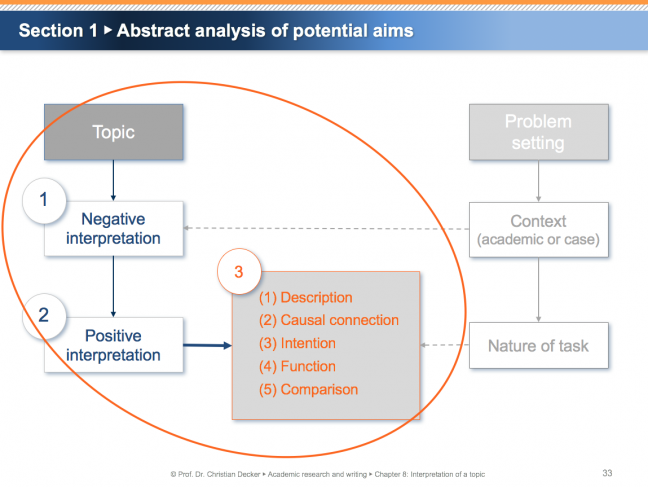A well-thought-out interpretation of the topic is a prerequisite for the successful execution of a research project. Especially in academic settings, research candidates have not only the duty, but also the right to develop an interpretation of their topics. In some cases, the thesis advisor might assist the interpretation process. In other cases, research candidates have to derive an interpretation on their own. An ideal interpretation process starts with a negative and a positive interpretation of the topic and thereby the identification of possible aims. Once possible aims and their implications are known, the research candidate has to select one aim or a combination of aims. There are five possible aims: description, causal connection, intention, function, and comparison. The interpretation of a topic can be of an abstract (theoretical) or problem-based (applied) nature. Within the process of a problem-based interpretation, the empirical environment has to be considered. The identified aim predetermines the nature of possible research questions to be investigated.
Link to e-learning videos: Overview of chapter 8
